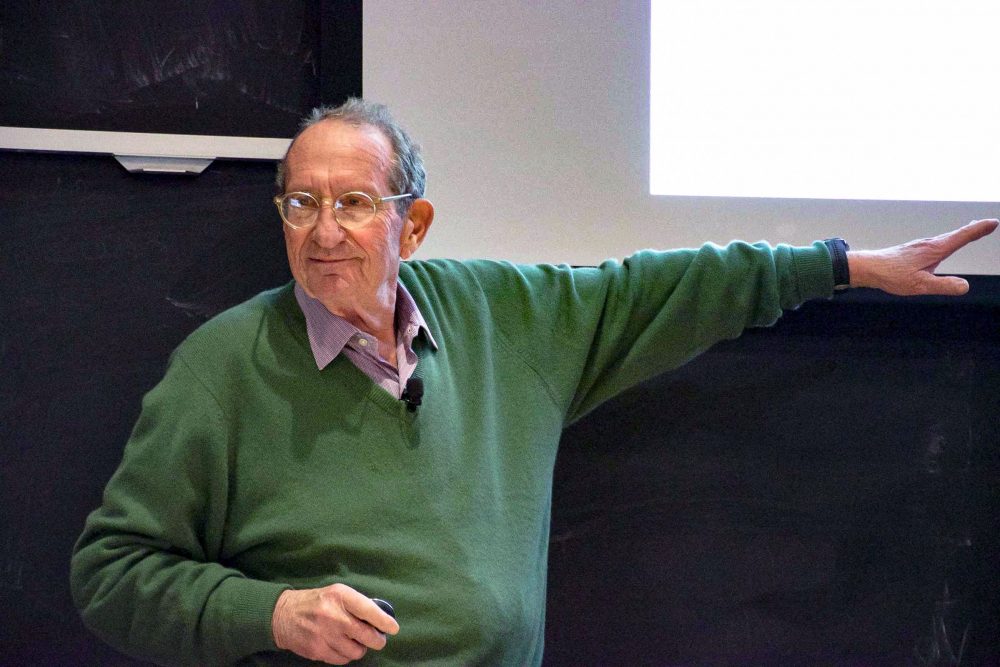
John Deutch, Institute Professor Emeritus at MIT and former director of the Central Intelligence Agency, recently delivered a talk at MITEI on creating and deploying effective decarbonization strategies. A former Chairman of the Department of Chemistry, Dean of Science, and Provost at MIT, Deutch also discussed the challenges of communicating across both scientific and policy communities to achieve the kind of full-spectrum systems thinking necessary to solve energy challenges. In a conversation with MITEI, Deutch expanded on the main themes of his talk.
Q: What do you see as the main challenges facing the creation and adoption of effective decarbonization policies?
A: The electricity generation and distribution system consists of enormous capital in plant and equipment. Any significant change in this system requires vast investment and a great deal of time. If this is to be accomplished efficiently, there must be stable policies with regard to operations, rates, and environmental regulation. The challenge for decarbonization is that the United States and other countries with developed market economies have not found it possible to put such stable policies in place. Policies are patch-quilt according to region, and they change with time.
Q: When you have to make policy pertaining to a system such as the electric grid, what is the best way to evaluate that policy’s effect on the system?
A: When considering various pathways of an electricity system from its present configuration to a desired future decarbonized configuration, there must be analysis scenarios with differing policy constraints such as emissions charges, regulatory mandates, and subsidies. The dynamic analysis must identify the costs and benefits for consumers, producers, and the environment for each scenario in order to inform decision makers of the most desirable stable policy.
Q: Out of the top possible decarbonization strategies, which do you think are the most promising and why? (You listed six in your talk: nuclear subsidy, emission charge, renewable portfolio standard (RPS), carbon-free RPS, clean tech R&D, and combinations of these options.)
A: I believe the policy which best strikes the balance is a carbon emission charge with the revenue recycled to non-carbon-emitting generating technologies such as nuclear, solar, wind, and hydropower. This policy approach charges fossil fuel generators such as coal and natural gas plants a charge for the social cost of CO2 they emit. That revenue is recycled to the non-carbon emitting generators to encourage their deployment.
Press inquiries: miteimedia@mit.edu